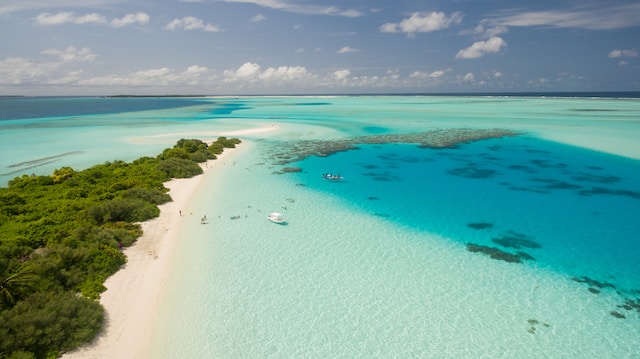We all love the Caribbean. However, it has a dark past that still haunts it to this day. Many black people from around the world will have unpleasant tales about their ancestors, how they ended up in the Caribbean, and what they were subjected to.
In this article, we dig into the history books to learn more about Caribbean black history.
Become an insider. Subscribe to our newsletter for more top trending stories like this!
People Also Read: 5 Best Black-Owned Luggage Companies
High Death Rate
Enslaved Africans died at a high rate during their transportation to the Caribbean or during their work in the plantations. Some studies show that about 12% of African slaves died on British ships between 1701 and 1807. Others put that figure at 25%.
The death rate at the plantations was high but figures aren’t provided. Their deaths were because of extremely long hours, poor living conditions, and poor eating poorly.
Presence of Many African Slaves
Before the Europeans invaded the Caribbean in the 15th and 19th centuries, indigenous people occupied it. After the importation of African slaves left a mixed population of Africans, Europeans, and the original people. Countries like Haiti are now largely black.
After being granted full citizenship during the French Revolution, they demanded their own independence. In 1791 and 1804, they declared national sovereignty, making them the first black country to gain independence.
People Also Read: Exploring Equatorial Guinea: Unveiling Its Hidden Gems
Hotbed of Slavery
During the 15th and 16th centuries, the Trans-Atlantic slave trade forced Africans to go to the Caribbean. This led to the enslavement of about 5 million Africans. They worked on sugarcane farms and did household chores for their masters.
As a result of their skin color, the slaves were treated inhumanely as white people considered them inferior. Today, they are referred to as Afro-Caribbeans and are largely associated with West Africa and other European nations – England, France, and Spain.
People Also Read: 6 Best Black Travel Groups
Become an insider. Subscribe to our newsletter for more top trending stories like this!
Slavery Fell in the 19th Century
The resistance against slavery began in the French territory of St Domingue and was successful. This led to more slaves escaping and forming a group known as the Maroons.
Eventually, the colonialists couldn’t withstand the pressure and handed the slaves their freedom. This happened in the 1830s in the British Caribbean. To help in the transition, a system described as apprenticeship was introduced but things remained unequal even after.
Join our Spotcovery Global Black Community Facebook Group for early access to exclusive content and to share in a lively discussion.
Federation With Britain Collapsed
After Haiti gained its independence in 1804, the Dominican Republic in 1844, Jamaica, and Trinidad & Tobago, the federation with Great Britain collapsed in 1962. Four years after that, the federation dissolved completely when Barbados left the federation.
In 2021, Barbados became a republic after partying ways with Queen Elizabeth II as its head of state. The Island’s governor-general Dame Sandra Mason was declared the president-elect. That said, Barbados is still part of the Commonwealth. Should other Caribbean nations part ways with the British royal family?
If you’re interested in the history of the Caribbean or slavery, many books on Amazon can help you learn more.
Nearly 80% of consumers visit directories with reviews to find a local business. List your business for free in our exclusive Spotcovery Black-Owned Business Directory.
Spotcovery offers unique and fresh daily content on Black culture, lifestyle, and experiences. We talk about everything black, black people, black-owned and black-owned businesses. We also deliver authentic and relevant content that will inform, inspire and empower you! The future of black media is critical to today’s black experience! Our primary audience includes African American, African, Afro-Caribbean, and people of African heritage. Black culture is for the culture!
Become an insider. Subscribe to our newsletter for more top trending stories like this!





